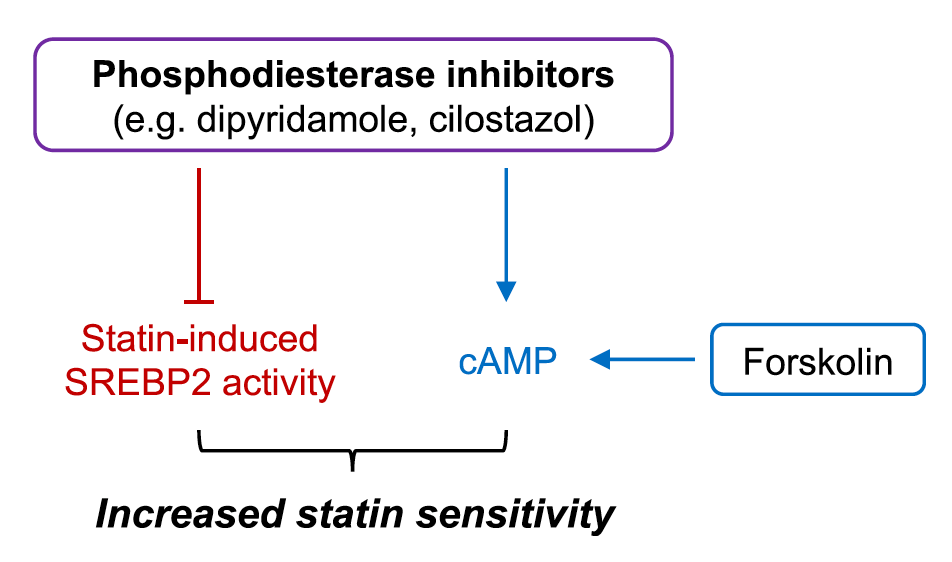Authors:
Longo J, , Penn LZ.
Abstract
Dipyridamole, an antiplatelet drug, has been shown to synergize with statins to induce cancer cell-specific apoptosis. However, given the polypharmacology of dipyridamole, the mechanism by which it potentiates statin-induced apoptosis remains unclear. Here, we applied a pharmacological approach to identify the activity of dipyridamole specific to its synergistic anticancer interaction with statins. We evaluated compounds that phenocopy the individual activities of dipyridamole and assessed whether they could potentiate statin-induced cell death. Notably, we identified that a phosphodiesterase (PDE) inhibitor, cilostazol, and other compounds that increase intracellular cyclic adenosine monophosphate (cAMP) levels potentiate statin-induced apoptosis in acute myeloid leukemia and multiple myeloma cells. Additionally, we demonstrated that both dipyridamole and cilostazol further inhibit statin-induced activation of sterol regulatory element-binding protein 2, a known modulator of statin sensitivity, in a cAMP-independent manner. Taken together, our data support that PDE inhibitors such as dipyridamole and cilostazol can potentiate statin-induced apoptosis via a dual mechanism. Given that several PDE inhibitors are clinically approved for various indications, they are immediately available for testing in combination with statins for the treatment of hematological malignancies.


